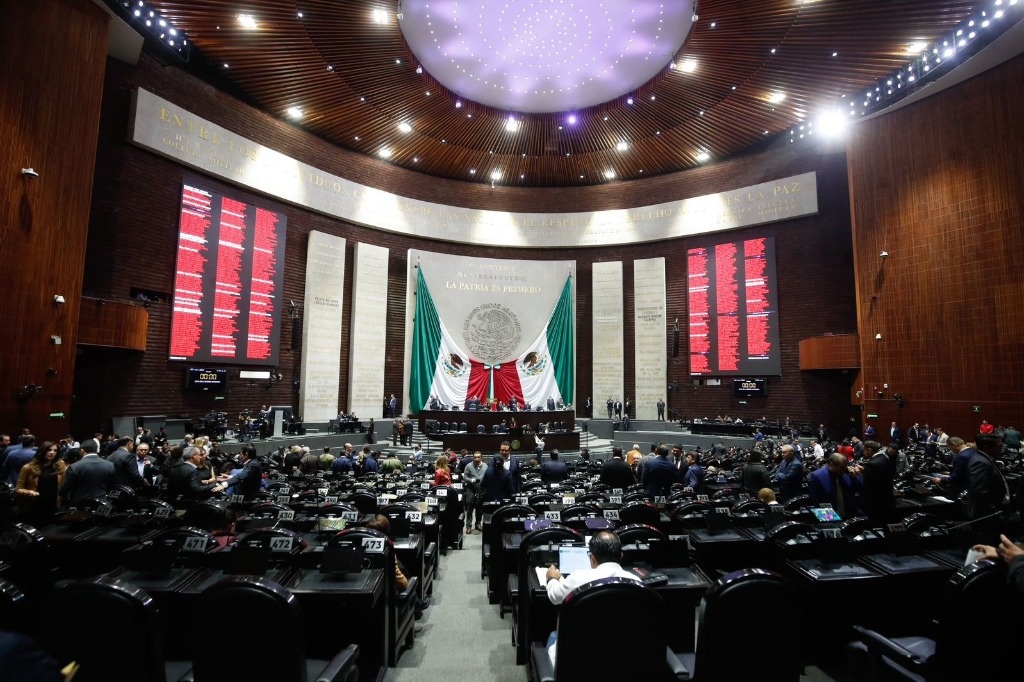Mexico City. The different political parties of the Chamber of Deputies today remembered the massacre of October 2, 1968 – whose 56th anniversary is commemorated this Wednesday – and while the opposition took advantage of the event to mention the risks involved in “authoritarian and omnipotent” governments. ”, Morena and its allies pointed out that currently young people are no longer repressed, but supported, and proposed removing the name of Gustavo Díaz Ordaz and Luis Echeverría from streets and schools.
When taking the stand to establish the PRI’s position, Congresswoman Fuensanta Guerrero highlighted the importance of “not losing sight of the lessons that our history has taught us,” and stressed that “the night of Tlatelolco left a deep wound as a result of the violence and repression.”
What happened in the Plaza of the Three Cultures, he said, was “one of the worst acts of repression, which not only sought to silence the voices of those who were fighting for a better country, but also tried to instill fear in the hearts of families. of Mexico.”
It was in this context where the legislator pointed out that “today, in a country where there are airs of authoritarianism, repression and injustice, the memory of those who lost their lives in Tlatelolco should not be in vain. (…) Never again will a country have an omnipotent presidency, where the balance of power deteriorates due to the will of a single man and where institutions are used to repress society.”
Immediately, PT member Lilia Aguilar responded that “it must be very difficult to get on this platform representing the PRI to talk about the massacre committed by Gustavo Díaz Ordaz and Luis Echeverría Álvarez. “You have to have a certain nerve to talk about ‘airs of authoritarianism’ when Díaz Ordaz said he felt ‘particularly proud’ that October 2 had allowed him to serve and save the country.”
In the same tone, he took the opportunity to emphasize that in the PRI governments, “when the bullets were real,” the Army and other repressive bodies attacked the people. “We are not equal, we will not disappear anyone, nor will we torture, nor will we order massacres. When the PRI comes here to say that the National Guard has represented militarization, it is because that is what they would do.”
Aguilar emphasized: “We must honor the memory of these students and remind the young people of this country that we live in different times because we have evolved in democracy thanks to left-wing and progressive movements that have been led in this country by former president Andrés Manuel López. Obrador and many who are in the Chamber of Deputies today”
However, the PAN member Daniel Chimal García once again took the anniversary of October 2, 1968 to refer to the current situation in the country and criticize the Morenoist governments.
What happened 56 years ago, he said, “reminds us how dangerous it is that power is held by a few hands without republican counterweights, without strong institutions of justice and human rights, and governments only thirsting for revenge.”
October 2, he pointed out, “reminds us of the thin line that the Army walks when it is entrusted with tasks against a civilian population. What would those young people of ’68 say when they saw the way in which the militarization of this country is being plotted, what would those young people say when they saw that this government, supposedly leftist, entrenches itself and builds walls in the face of the protests of young university students? That is the historical incongruity of Morena.”
The students who demonstrated in recent weeks against the reform of the Judiciary, he said, “raised their voices to warn about the dangers of a regime that is concentrating power and building a new hyper-presidentialism.”
The response of the cherry bench was in charge of Arturo Roberto Hernández Tapia, who pointed out that, unlike what happened in the “despotic, authoritarian and criminal” government of Díaz Ordaz, the administration of López Obrador elevated the support to constitutional rank to young people who did not have access to employment or formal study.
“The social, economic and democratic development of a nation is not possible without the participation and recognition of its youth, who instead of abuses, repression and violence from the neoliberal PRI and PAN governments, currently receive support, scholarships, accompaniment, freedoms , access to education and work.
“Without a doubt, today the Mexican reality is different, and we owe a lot of that to the student movement of ’68 (…) and it is the historical watershed of the Fourth Transformation, since it marked the beginning of the citizen struggle against repression, corruption and the despotism of neoliberal governments,” he stressed.
In this context, he welcomed the fact that President Claudia Sheinbaum ordered that the Mexican State issue a public apology for the Tlatelolco massacre, which means an “unprecedented gesture,” and urged “in a personal capacity” the three levels of government to eliminate the names of Gustavo Díaz Ordaz and Luis Echeverría Álvarez from the nomenclature of schools, streets and public institutions.
#Young #people #longer #repressed #supported #Morena #allies #San #Lázaro
–
